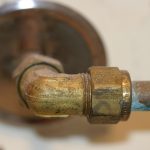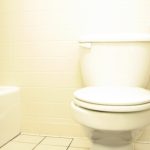Cooking with a lot of grease and oil may not be the best choice for our waistlines, but it does produce some tasty food. But, this leaves us with a dilemma; we cannot simply pour the fat and oil into the drain. This is a sure way to clog up your plumbing pipes because the grease becomes solid and cause other materials to adhere to it over time. This can lead to serious clogging issues that you may not be able to remove with your trusty cup plunger. So, how do you dispose of leftover oil and grease responsibly?
Freezing Grease Works
So, if you cannot pour the oil and grease into the drain, the next logical choice is to pour them into your trash bag, right? Well, no, that’s not going to work well, your trash can will become greasy, wet and smell really bad until it’s collected. Greasy smelling trash attracts animals looking for food, and it’s just a nasty odor to have anywhere near your home. But, there is a smart trick that works well, let the grease and oil cool to room temperature, and then pour it into a plastic container and freeze it. Do this the night before the next garbage collection, and then scrape it into the trash in the morning before it goes to the curb. Then you can avoid those awful odors and the extra greasy mess in your trash can.
Using the Garbage Disposal Unit
Sometimes, some grease or oil is going to get into your kitchen sink and then into the drain. But, this isn’t a disaster, especially if you have a garbage disposal unit in your kitchen sink. Simply turn on the cold water to make the grease solidify before it can get further into the drainage system. Once the cold water has run for a few up to five minutes, turn on the garbage disposal, and this will shred up the hard grease. Keep the cold water running, and this should flush out those hard grease pieces before they get a chance to melt again.
Flushing Out Grease and Oil
Many people don’t have a garbage disposal unit to break apart solidified grease before it hits the main drain line. So, if you happen to use greasy or oily products or you spill some in the sink, what can you do? In this case, the opposite applies, you turn on the kitchen sink water to the hottest that you can get it and let it run for at least five minutes. This will keep the grease in its melted state, and it will help you to get it moving out of your drain before it can turn solid. To avoid this problem in the future, it’s a great idea to install a catcher in every sink in the home to catch some of the oil before it can enter your drain.
If you do have a clog, don’t resort to using chemical cleaning products because they can damage your plumbing pipes. Use a cup plunger to attempt a manual clog removal or try using a plumbing snake. If you’re not confident with plumbing or if the clog is hard to remove, contact your
local certified plumber for expert help.
By Giovanni Longo President Flood Brothers Plumbing
Giovanni Longo is a 3rd generation master plumber who has been practicing his craft and trade in the greater Los Angeles area for well over a decade and a half. A plumbing and hydraulics-engineering innovator, Giovanni’s particular world-class expertise focuses on dealing with challenging sewer system designs as well as resolving complex commercial and residential draining issues. As a certified Flood Mitigation expert, he is also well versed in a wide variety of water damage and remediation solution.





